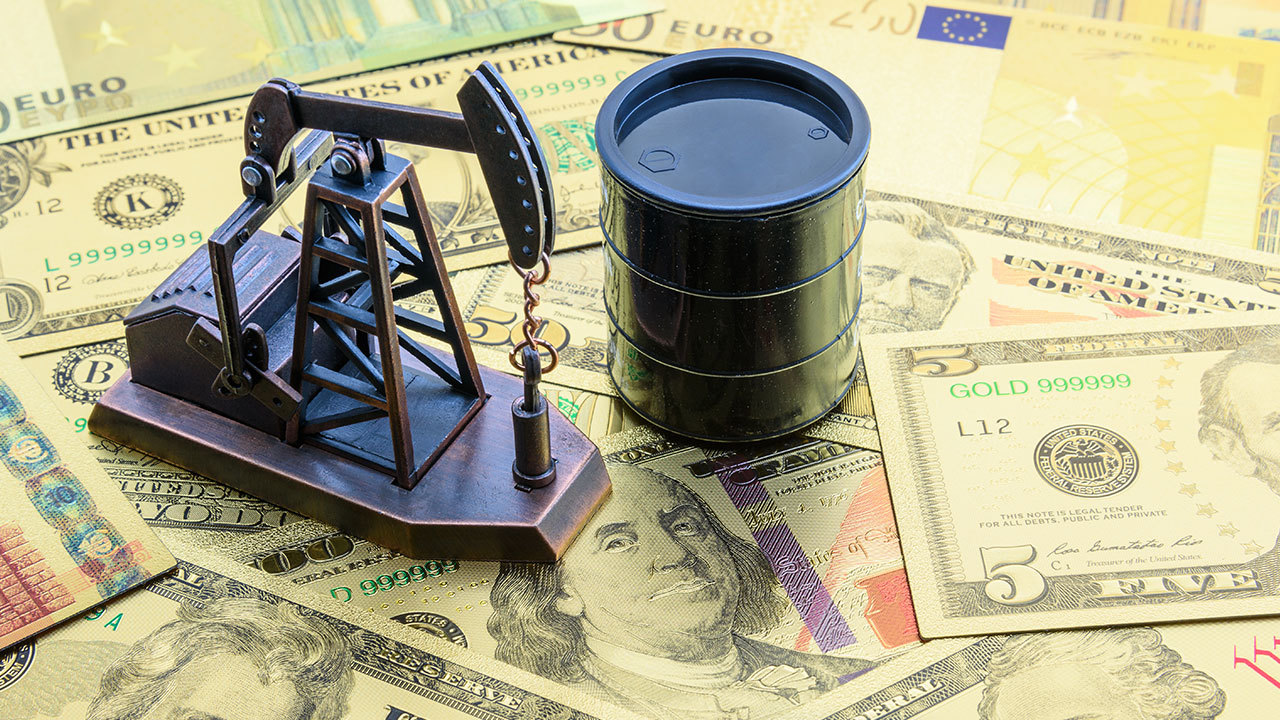EQUITIES
Shares in Asia-Pacific largely declined in Wednesday trade. The Nikkei 225 in Japan dropped 2% before pared the losses to 1.65%. Mainland Chinese stocks were also lower, with the Shanghai composite down 0.30% while in Hong Kong, the Hang Seng index shed 1.05%. The FTSE Straits Times Index in Singapore meanwhile slipped 0.65%.
Elsewhere, Australia’s S&P/ASX 200 rose 0.28% on the back of positive economic data and rising commodity prices. South Korea’s KOSPI sat 0.53% higher as it returns from Tuesday’s holiday.
Overnight on Wall Street, the Dow Jones Industrial Average dropped 597.65 points to 33,294.95 while the S&P 500 shed 1.55% to 4,306.26. The Nasdaq Composite declined 1.59% to 13,532.46.
OIL
Oil shot back above $100 a barrel and surged to seven-year highs on Wednesday as supply disruption fears mounted following the aggressive sanctions against Russia after its invasion of Ukraine, while traders also scrambled to seek alternative oil sources in an already tight market.
Oil prices upward trek came despite the International Energy Agency on Tuesday saying it will release 60 million barrels of oil or 4% from global reserves, in a bid to ease the current supply constraint.
Underscoring tightness in the market, the latest data from the API industry group showed U.S. crude inventories fell by 6.1 million barrels for the week ended Feb. 25. The U.S. EIA is due to release weekly data on Wednesday.
Meanwhile OPEC+ are due to meet on Wednesday, where they are expected to stick to their plans to increase supplies by 400,000 bpd.
The international benchmark Brent crude futures rose to $109.97 per barrel. It briefly climbed as high as $111.09 per barrel earlier, its highest in more than 7 years. The U.S. crude futures also saw big gains, rising to $108.51 per barrel.
Overnight, the Brent futures ends at $104.97 a barrel, while the WTI crude oil prices closed to $103.41 per barrel.
CURRENCIES
The Russia-Ukraine conflict will probably continue to dominate markets for the foreseeable future. The announcement yesterday that Russia will not pay coupons to foreign holders on its government debt should push investors further into safe havens. The conflict also prompted investors to trim bets that the Fed will aggressively hike interest rates in coming months.
The U.S. dollar index, which tracks the greenback against a basket of its peers, was at 97.475 after a recent climb from levels below 97.
The U.S. Treasury yield rebounded after dropping to 8-week lows on Tuesday. The benchmark U.S. 10-year yield rose to 1.753% from 1.711% late on Tuesday and the policy-sensitive 2-year yield jumped to 1.378% from 1.305%. German government debt also rallied.
Meanwhile, dollar was last quoted up 1% against the rouble at 109.292 after touching a record high of 117 a day earlier.
GOLD
Gold, which touched an 18-month high last week and had surged nearly 2% on Tuesday over the worsening Ukraine crisis, gave back 0.33% to $1,938.90 per ounce as the dollar firmed. U.S. gold futures shed 0.17% to $1,940.50.
ECONOMIC OUTLOOK
Asian stocks came under renewed pressure on Wednesday and as investors fretted about the impact of aggressive sanctions against Russia over its invasion of Ukraine.
Price of oil surged past $110 per barrel after the International Energy Agency warned that global energy security is under threat. Investors will be watching for a response from OPEC+ when the cartel meets later today to discuss April supply, though only a modest increase is expected despite the turmoil rippling through the sector.
Global sanctions against Moscow tighten, with the U.S. banning Russian flights using American airspace, following similar moves by the EU and Canada. Global sanctions against Russia have prompted a string of major companies to announce suspensions to or exits from their businesses in the country. Exxon Mobil said on Tuesday that it will exit Russia operations, including oil production fields, following similar decisions by British oil giants BP PLC and Shell, and Norway's Equinor SA.
On a positive note, data showed U.S. manufacturing activity picked up more than expected in February as COVID-19 infections subsided, while construction spending surged in January. The survey, however, was conducted before last Thursday's invasion of Ukraine by Russia, which some economists say could further choke supply chains, and especially worsen the shortage of semiconductors. The conflict has caused a surge in oil and wheat prices, among other commodities. Russia and Ukraine are producers of key materials used to manufacture semiconductors.
Meanwhile in eurozone, the February PMI data showed that momentum in manufacturing growth had already waned slightly last month, although still relatively strong and firms said supply chain constraints had eased.
Economic activity in Australia rose 3.4% in the Q4, according to data released Wednesday by the country’s Bureau of Statistics.













